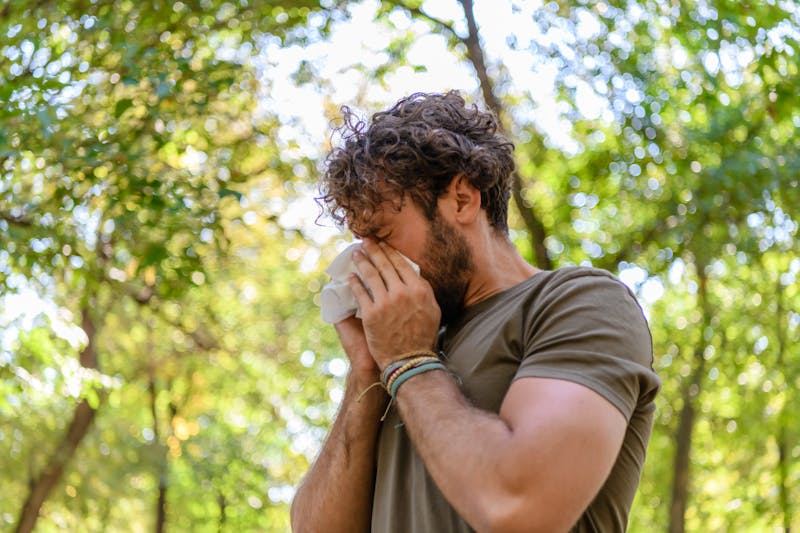
At one time or another, you’ve probably heard the phrase “allergy season” thrown around. However, different people may be referring to different times of the year when they use this term. After all, there are plenty of people who experience noticeable allergy symptoms during more than one season. So, which season is actually the worst time of year for allergies? Ultimately, it depends on who you ask.
Spring
Spring is probably the season most commonly referred to when talking about “allergy season.” Early in the springtime, trees start to produce pollen, which causes allergy symptoms for many people. Later in the season, the grass begins to create pollen as well, making things even more unpleasant for those suffering from allergies.
The increased likelihood of rain is another reason why spring can be a rough time for people with allergies. When it rains, mold spores become much more likely to develop and spread. So, if you’re allergic to mold, you may notice that your symptoms increase quite a bit during and after a rainy spring. In the Houston area, May and June tend to be two of the rainiest months of the year, which arguably makes late spring worse for allergies than early spring.
Summer
For many people, the summertime can be quite a bit worse for allergy symptoms than spring. There are a couple of reasons why this may be the case. For one, as the summer heat bakes the grass, the grass goes into a dormant state. That makes it much easier for dirt and dust to get kicked up on windy days, which can cause unpleasant symptoms for anyone allergic to dust mites.
Another cause of summertime allergy symptoms is the emergence of ragweed. Ragweed, which is a flowering plant found near river banks, is an allergen that affects numerous people. As the summer progresses, ragweed spreads rapidly, causing lots of allergy flare-ups around Houston and the rest of the country.
Fall
Although it may be the underdog when compared to spring and summer, fall is another contender for the worst allergy season of the year. For one thing, ragweed continues to grow and spread well into autumn, preventing those with ragweed allergies from finding relief. Additionally, the cooler weather of the season allows grass and a variety of other plants to return. As a result, the pollen levels rise once again, and many other plant-based allergens make their arrival.
What is the Takeaway?
As you can see, allergies most certainly aren’t limited to just one season. No matter what time of year it is, you can bet that plenty of people are dealing with allergy symptoms. Most people would agree that spring is the worst season for allergens in the air, but it really depends on where you live and the specific allergies you have. If you need help dealing with allergy symptoms in the greater Houston area, consider scheduling an appointment with the expert team at Texas ENT Specialists.

